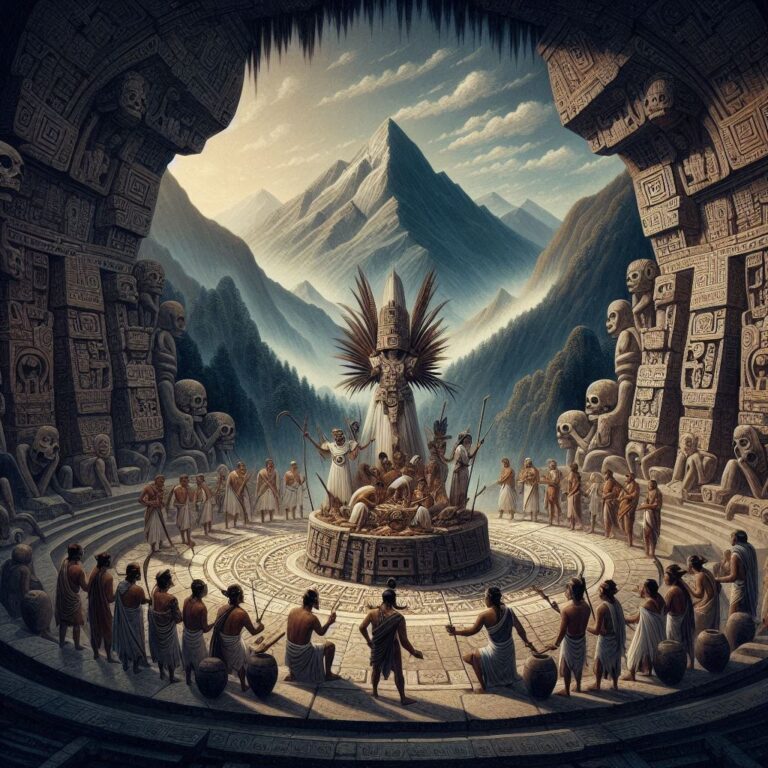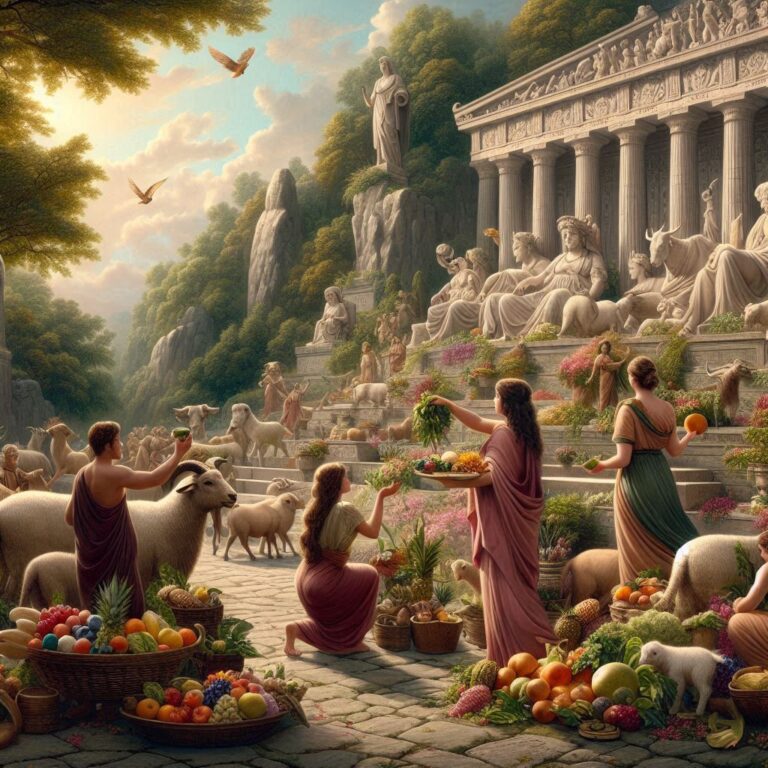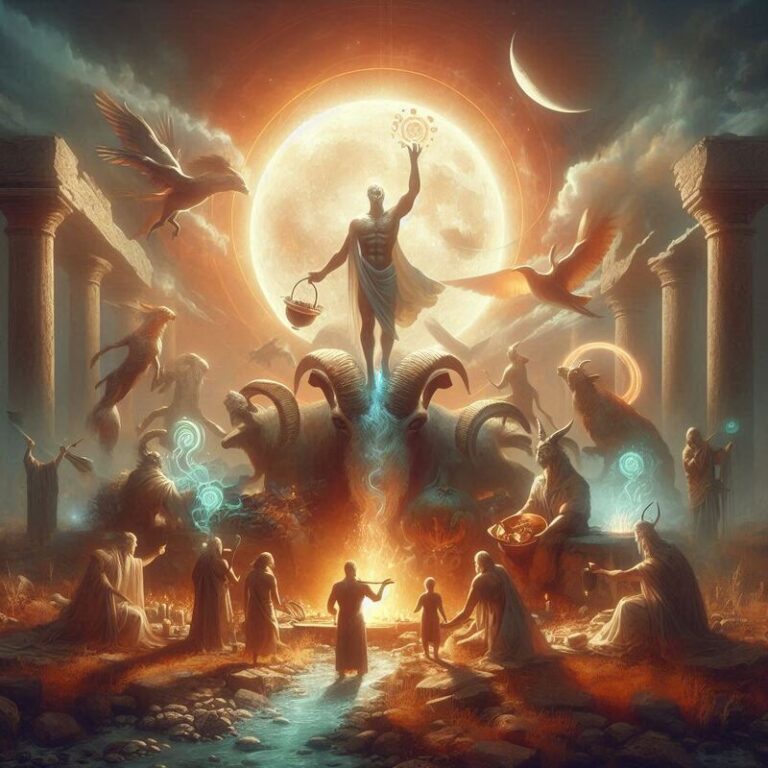Sacrifices of the Heart
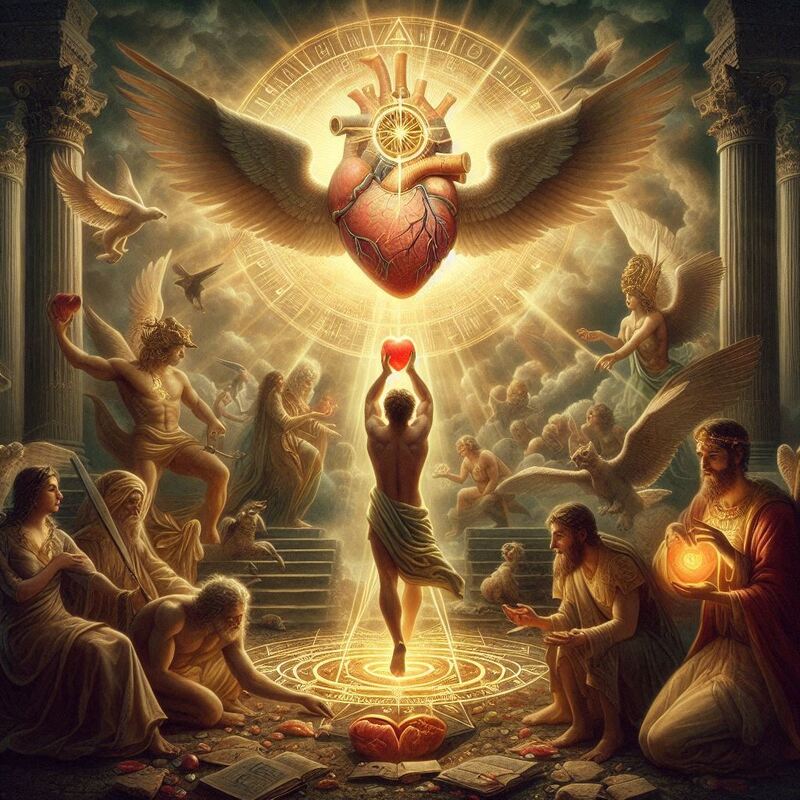
Sacrifices of the Heart
Sacrifices of the Heart: Exploring the Spiritual Significance in Mythical Ceremonies
Sacrifices have been a cornerstone of religious and cultural practices throughout history, providing a means for humans to express their devotion, gratitude, and reverence for the divine. While the physical acts of sacrifice—whether offering food, animals, or other valuable items—are well-documented, the deeper spiritual significance of these rituals is equally profound. This article delves into the heart of mythical ceremonies, exploring the spiritual dimensions of sacrifice and how they reflect the values, beliefs, and aspirations of various cultures.
The Concept of Sacrifice in Mythology
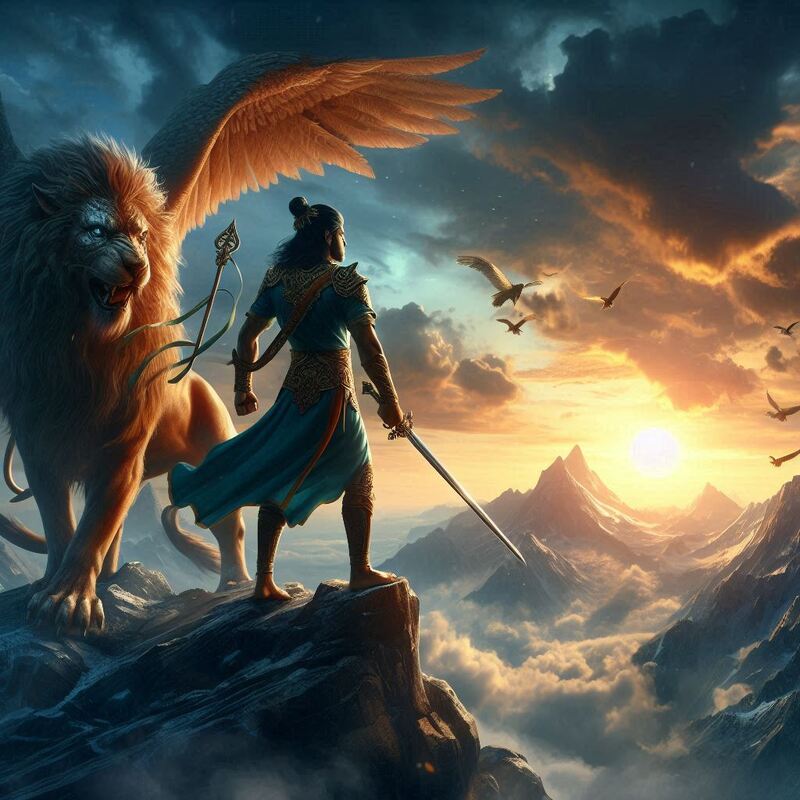
In mythological contexts, sacrifices are often portrayed as essential acts to maintain harmony between the human and divine realms. These offerings symbolize the recognition of human dependence on higher powers and the desire to align with the divine will. The term “sacrifices of the heart” emphasizes the emotional and spiritual commitment involved in these rituals, going beyond the mere physical act to encompass a deeper, more personal connection with the divine.
Greek Mythology: Sacrifices to the Olympian Gods
Sacrifices of the Heart
In ancient Greek mythology, sacrifices played a crucial role in worship and communication with the gods. The Greeks believed that the gods influenced every aspect of life, from agriculture and weather to warfare and personal fate. Sacrifices, therefore, were acts of reverence and petition.
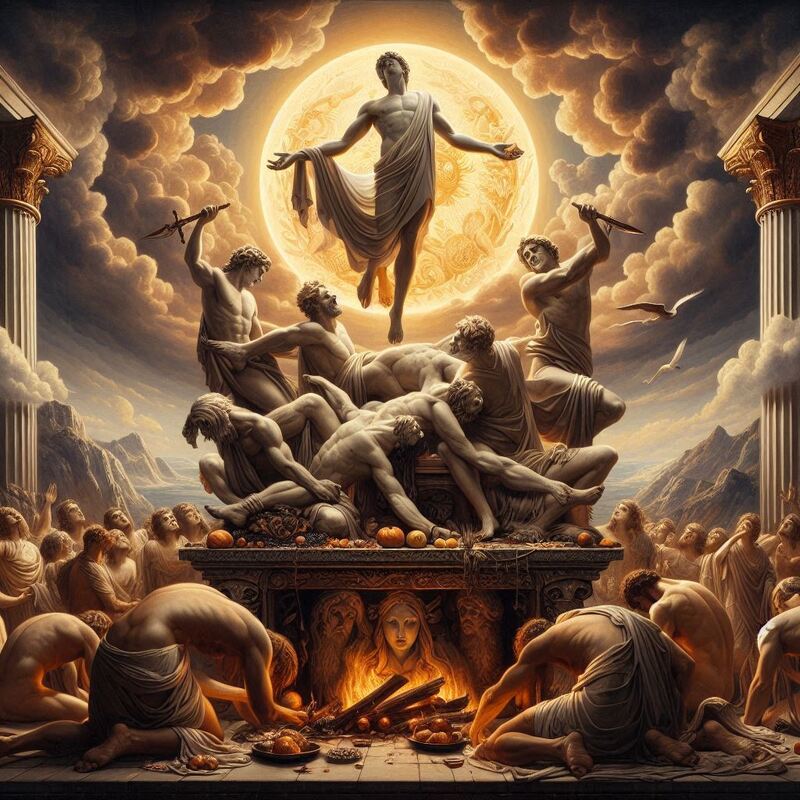
Animal sacrifices, particularly of oxen, sheep, and goats, were common. These rituals were performed with great care, often accompanied by prayers and hymns. The Homeric epics describe scenes where the best portions of the animal were burned on the altar as a gift to the gods, while the remaining parts were shared among the participants in a communal feast. This practice not only honored the gods but also reinforced social bonds and community cohesion.
The spiritual significance of these sacrifices lay in the intent behind them. They were not mere transactions but acts of devotion and humility. By offering the finest animals, the Greeks demonstrated their willingness to part with valuable resources, symbolizing their trust in the gods’ benevolence and their acknowledgment of divine supremacy.
Hinduism: Yajna and the Sacred Fire
Sacrifices of the Heart
In Hinduism, the practice of yajna (sacrifice) is a deeply spiritual ritual involving the offering of oblations into a sacred fire. The fire is considered a divine witness and a medium through which offerings reach the gods. The Rigveda, one of Hinduism’s oldest texts, extols the virtues of yajna, highlighting its role in sustaining cosmic order (rita) and fostering spiritual growth.

Yajna ceremonies can range from simple daily rituals, like the agnihotra, to elaborate rites performed during significant religious festivals. The offerings typically include ghee (clarified butter), grains, and soma (a ritual drink), accompanied by the chanting of Vedic hymns.
The spiritual essence of yajna lies in its symbolism of selfless giving and the pursuit of purity. The fire represents divine presence, and the act of offering symbolizes the relinquishment of ego and material attachments. By participating in yajna, practitioners aim to purify their hearts, align with cosmic principles, and cultivate a sense of unity with the divine.
Norse Mythology: Blót and the Celebration of Life
Sacrifices of the Heart
In Norse mythology, the blót was a sacrificial ceremony dedicated to gods like Odin, Thor, and Freyja. These rituals involved offerings of animals, food, and mead, and were conducted to seek the gods’ favor for prosperity, protection, and victory in battles. Blóts were communal events, often held during seasonal festivals like Yule and Midsummer, reinforcing social bonds and shared cultural values.
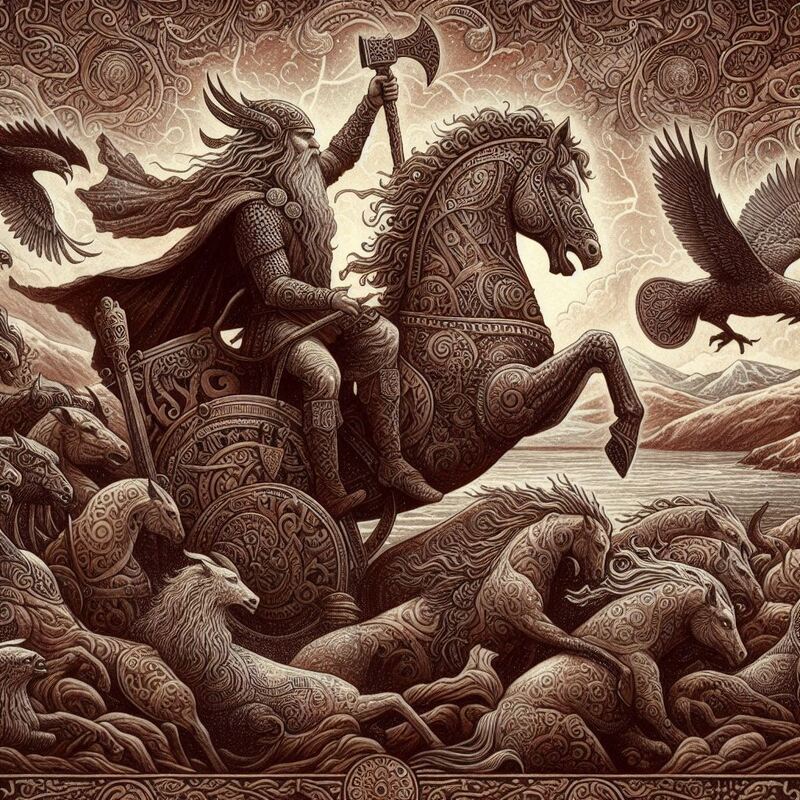
The spiritual significance of blót ceremonies lay in their celebration of life and acknowledgment of the divine forces governing nature and human destiny. The offerings were seen as gifts to the gods, expressing gratitude and reverence. By sharing the sacrificial feast, participants reaffirmed their unity and collective identity, while the act of sacrifice itself symbolized their commitment to the gods’ service and the community’s welfare.
Aztec Mythology: Human Sacrifice and Cosmic Renewal
Sacrifices of the Heart
Aztec mythology presents a striking example of the spiritual significance of sacrifice through its practice of human offerings. The Aztecs believed that the gods had sacrificed themselves to create the world and sustain the sun, and human sacrifices were viewed as a necessary reciprocation to ensure the continuation of life and cosmic order.
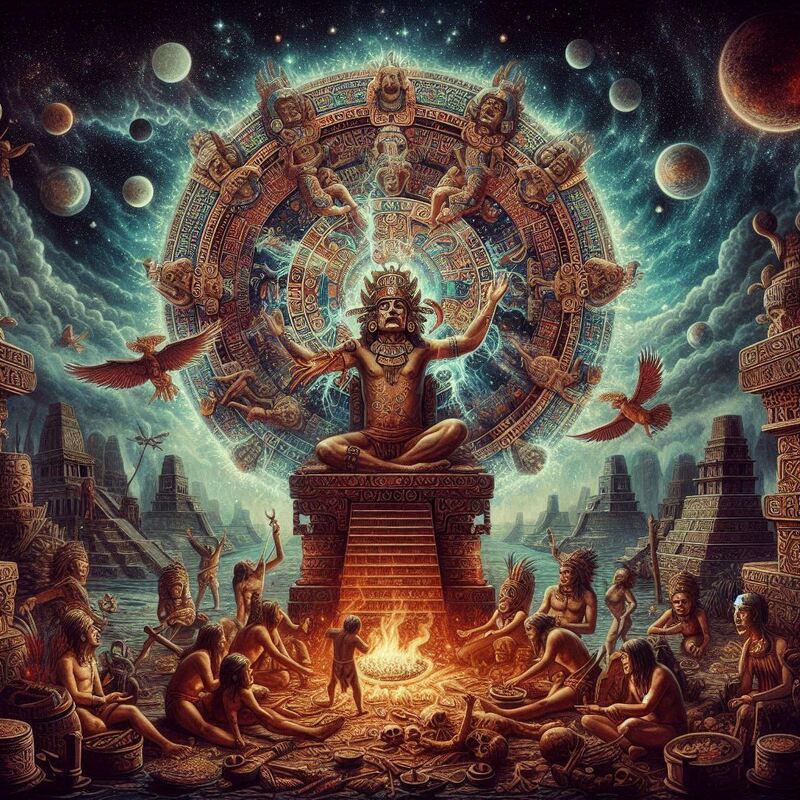
These sacrifices were performed during major religious festivals, such as the Feast of Toxcatl and the New Fire Ceremony. The victims, often captured warriors, were honored and treated with reverence, believed to be messengers to the gods.
The spiritual essence of Aztec human sacrifices lay in their profound symbolism of life, death, and rebirth. The rituals underscored the interconnectedness of all existence and the cyclical nature of time. While the practice may seem harsh from a modern perspective, for the Aztecs, it was a deeply spiritual act, reflecting their ultimate devotion and responsibility to the cosmic balance.
Egyptian Mythology: Offerings to the Gods and Pharaohs
Sacrifices of the Heart
In ancient Egyptian mythology, sacrifices were integral to maintaining ma’at, the cosmic order. Offerings included food, drink, incense, and animals, presented at temples to honor gods like Ra, Osiris, and Isis, as well as the divine pharaohs. The rituals were elaborate, involving priests, chants, and sacred rites, ensuring the gods’ favor and the land’s fertility.
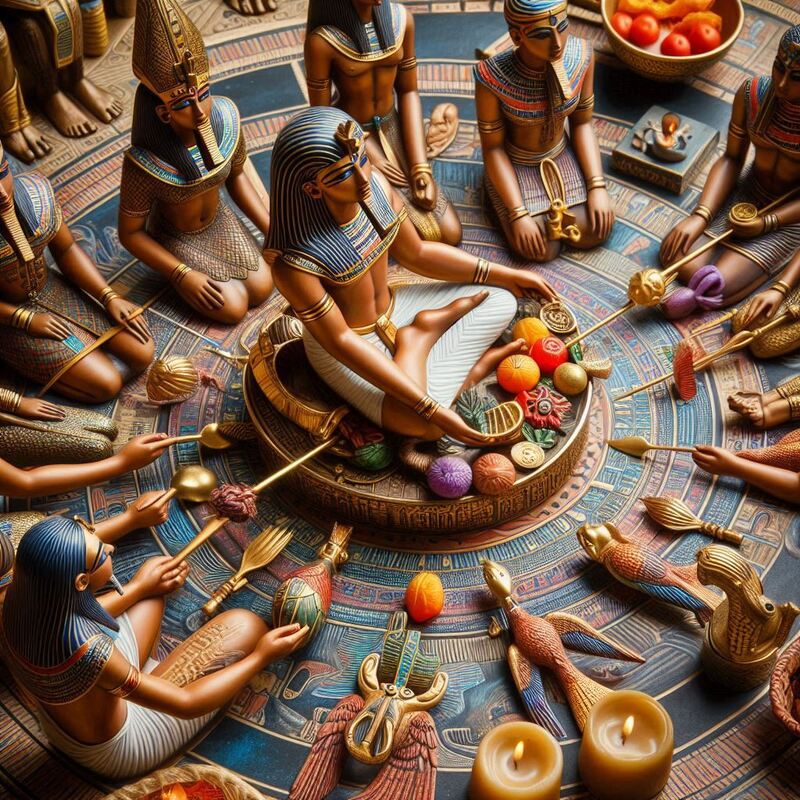
The spiritual significance of these offerings lay in their role as acts of devotion and gratitude. The Egyptians believed that the gods sustained the universe and their well-being was dependent on divine grace. By offering sacrifices, they expressed their reverence, sought divine guidance, and reinforced their commitment to maintaining harmony and balance in the world.
The Universal Themes in Sacrificial Rituals
Sacrifices of the Heart
Despite the diversity in sacrificial practices across cultures, certain universal themes emerge that highlight the spiritual significance of these rituals. Sacrifices often symbolize selflessness, devotion, and the recognition of a higher power. They serve as reminders of human limitations and the need for divine intervention and support.

Sacrificial rituals also reinforce communal values and social cohesion. By participating in these ceremonies, individuals express their shared beliefs and collective identity, fostering a sense of unity and belonging. The act of offering, whether material or symbolic, represents a commitment to the greater good and the pursuit of spiritual growth.
Modern Interpretations and Continuing Legacy
Sacrifices of the Heart
While the specific practices of ancient sacrifices may no longer be prevalent, the underlying principles continue to influence contemporary religious and cultural expressions. Acts of charity, offerings in temples and churches, and rituals of thanksgiving and remembrance all echo the ancient traditions of sacrifice.

Modern interpretations often focus on the symbolic aspects of sacrifice, emphasizing the importance of inner purity, selflessness, and devotion. These values are reflected in spiritual practices that encourage personal growth, community service, and a deeper connection with the divine.
Conclusion
Sacrifices in mythical ceremonies are profound expressions of human spirituality, reflecting deep-seated beliefs and values across cultures. These rituals, whether involving the offering of animals, food, or even humans, were not merely acts of appeasement but embodied the spiritual commitment and reverence of ancient societies. By exploring the spiritual significance of sacrifices, we gain insight into the universal themes of devotion, gratitude, and the quest for harmony with the divine. As we honor these traditions in modern contexts, we continue to draw inspiration from the sacrifices of the heart, fostering a deeper understanding of our shared human heritage and our enduring connection with the sacred.
